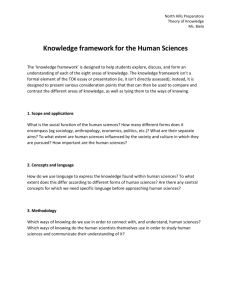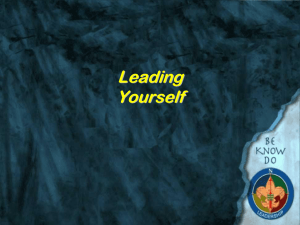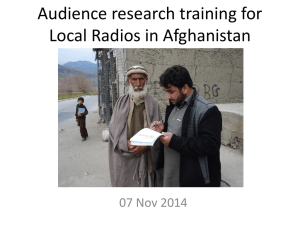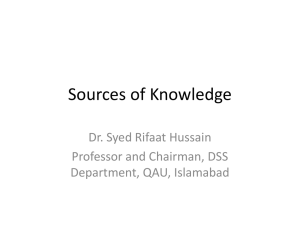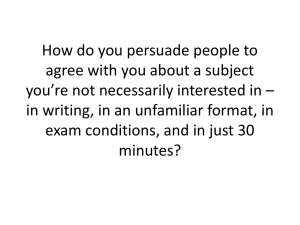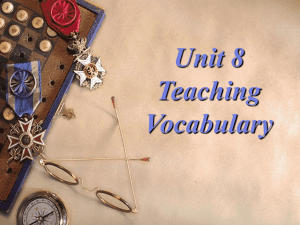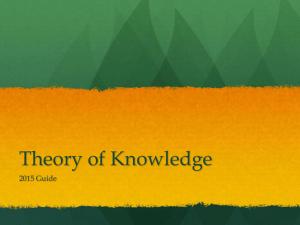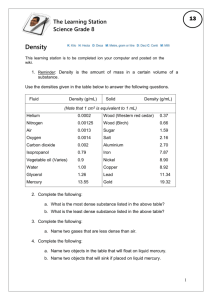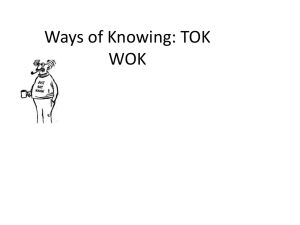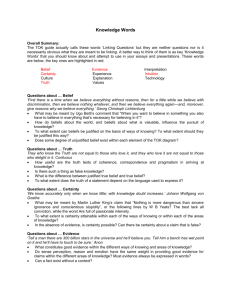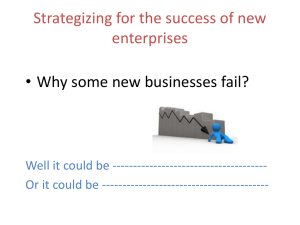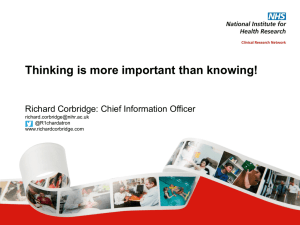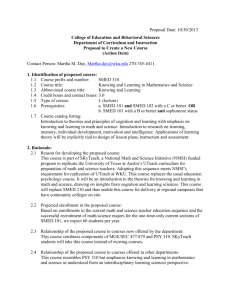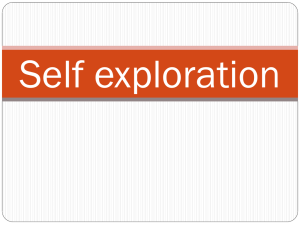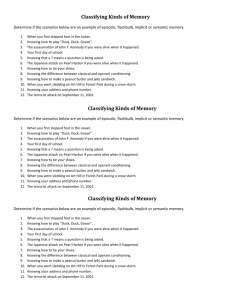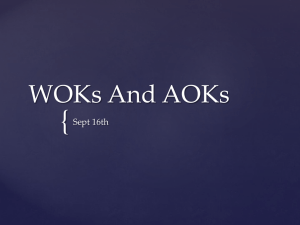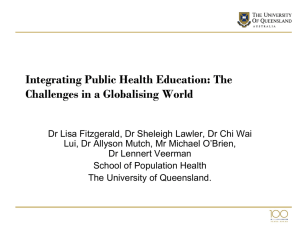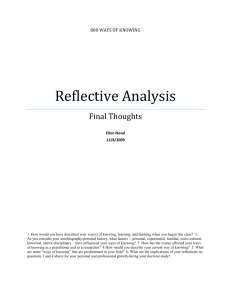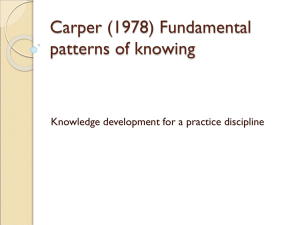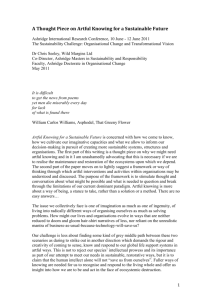Knowledge
advertisement
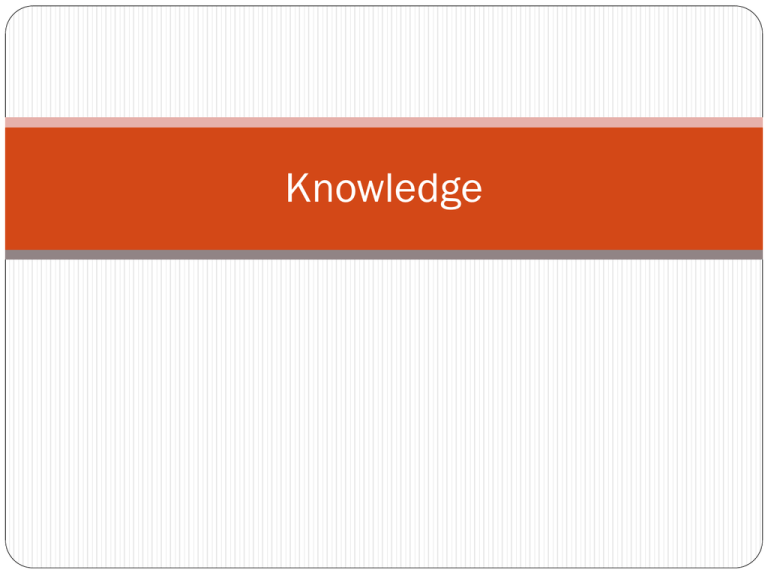
Knowledge What is knowledge? Classifying knowledge ideas – complete Your discussion has been in English. In French and Spanish for example there are 2 words for ‘know’ that immediately place knowing a person or a place in a different category from knowing information. When we deal with knowledge we are dealing with ‘ideas' in our mind. They do have independent existence outside our minds!! We create knowledge. Knowing We can treat knowledge as falling into 3 categories: 1. Knowing through direct experience. (examples from list?) 2. Knowing how/skill. They all involve a skill.(examples from list?) 3. Knowing that/knowledge claim. They all make a claim and have an assertion of being true. Questions: Which ways of knowing are most relevant to each category? In which of the categories is it relevant to talk about true and false? Do you think wisdom is a blend of these or another kind of knowledge entirely? Knowing in your IB Diploma Knowing/direct experience Knowing how /skills Knowing that / knowledge claims Language A1 Fill in the table for all 6 of your IB subjects, considering to what extent and in what ways each of your subjects contributes to each type of knowing. 1. Is it fair to say that you gain all 3 categories of knowledge from all subjects? 2. Do you think different subjects offer a different balance of the three? Looking more closely at knowing that / knowledge claim…. The knowledge claim is expressed in language. The language of the knowledge claim is an assertion. I am taller than Mr. Hooper. (I know that does not have to be present) The knowledge claim is exactly that, a knowledge claim. It is presented as being true. These are what we will be dealing with primarily in TOK, knowledge claims and how we examine them. Precisely what is being claimed? What supports this claim? Should I believe it? Is it true? Knowledge claims – do you believe them? Voodoo Doc Dances up a Storm…. Tests for Truth 1. Coherence Test (Does this fit with what I already know?) ‘Rubbish, no man can control the weather’. You test the truth of this claim on the basis of other claims you already believe. Problems: What are the problems that you can identify with using a body of beliefs already held to judge a new claim? Is it possible for two people using the coherence test to reach different conclusions? Sum up the strengths and weaknesses of this test. Tests for Truth Correspondence Test (Go and check!) This tests demands that the knowledge claim actually match or correspond to what actually happened in the world. Is there Enough evidence to make it reliable? 1. What are the problems with this test? 2. Is it possible for two people using this test to reach different conclusions? 3. Sum up the strengths and weaknesses of this test. 2. Tests for Truth… 3. Pragmatic Test (Does it work?)
![Transformational Change [Powerpoint Presentation]](http://s2.studylib.net/store/data/005447411_1-da0a83bd34bdb90183940ab700125003-300x300.png)
